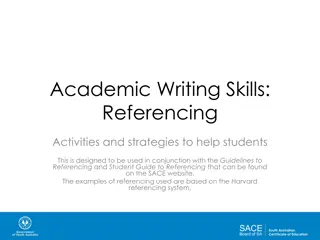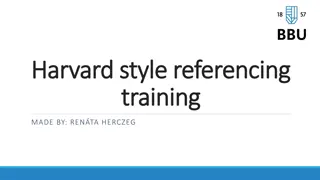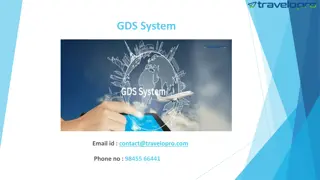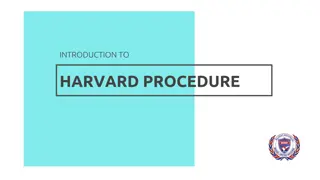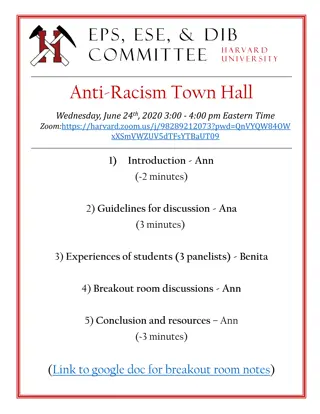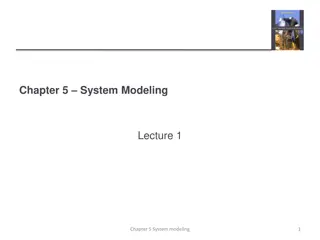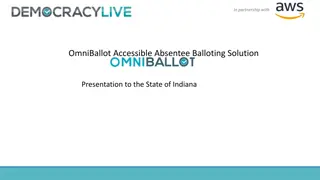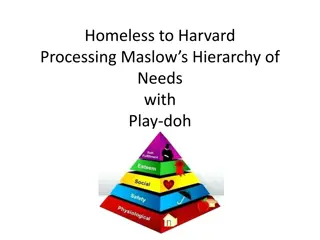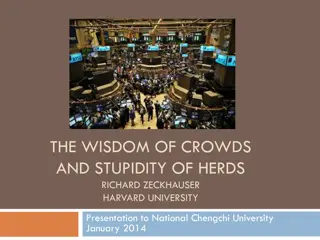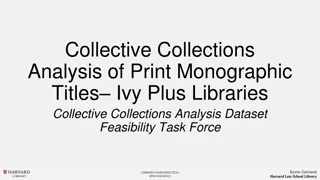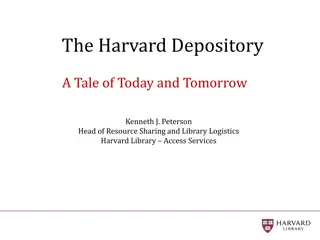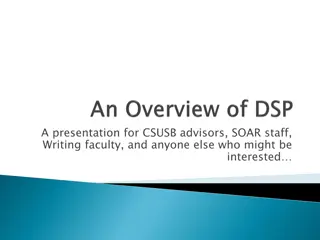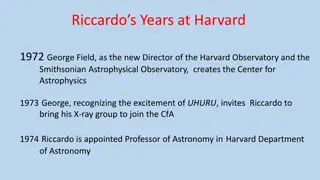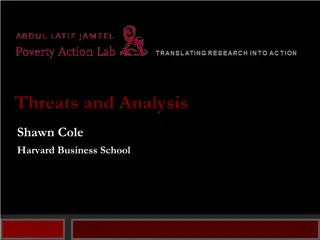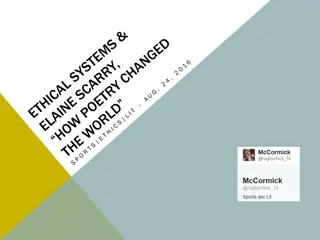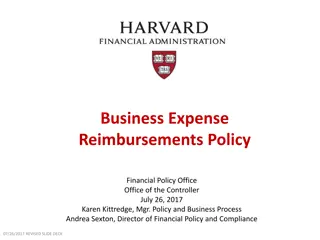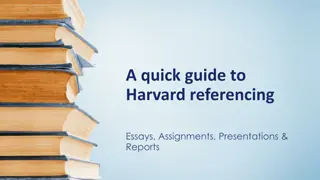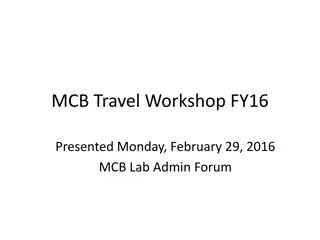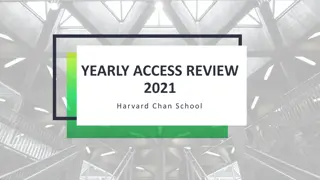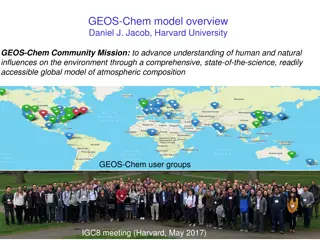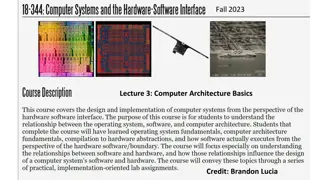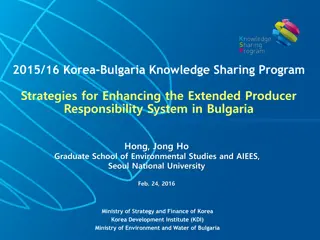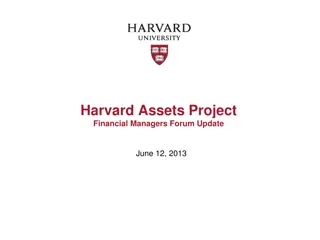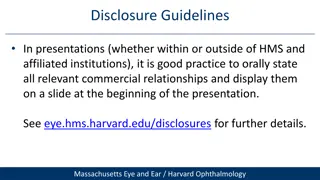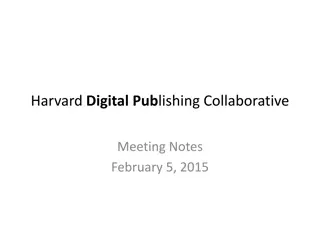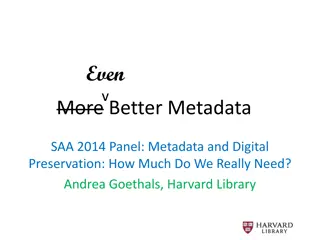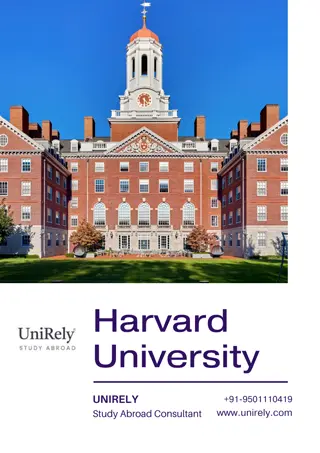System Models in Software Engineering: A Comprehensive Overview
System models play a crucial role in software engineering, aiding in understanding system functionality and communicating with customers. They include context models, behavioural models, data models, object models, and more, each offering unique perspectives on the system. Different types of system
5 views • 33 slides
Mastering Referencing Skills for Academic Writing Success
Enhance your academic writing skills with this comprehensive guide on referencing activities and strategies. Learn the importance of referencing direct quotations, ideas, tables, and images. Understand the elements required for in-text referencing and when to use "et al." Dive into practical example
3 views • 22 slides
Harvard Style Referencing and Avoiding Plagiarism
Learn about Harvard referencing style, the importance of avoiding plagiarism, and how to create in-text references properly. Understand the BBU FCHT Harvard system for author-year method referencing and how to cite books and book chapters effectively.
1 views • 24 slides
GDS System
Travelopro Global Distribution System (GDS) is a computerized network system. It is a large computer network which is integrated with 100 of worldwide Airlines and consolidators for enabling transactions between travel agents and travel sites and also used by airlines, hotels, car rentals, railways
4 views • 15 slides
Concerns Over Weight Loss Drugs and Rare Eye Condition
Novo Nordisk shares remained stable on Thursday, despite a critical report from Harvard Medical School linking the company\u2019s weight loss drugs to a rare eye condition
0 views • 2 slides
Harvard Procedure Guidelines and Rules for Model United Nations
In this guide, you will explore the rules and procedures specific to the Harvard Procedure in Model United Nations. It covers general rules, guidelines on resolutions and voting, language requirements, courtesy expectations, rules of procedure, motions, points of order, and parliamentary inquiries.
6 views • 20 slides
Harvard University Anti-Racism Town Hall Event
Harvard University's EPS, ESE, & DIB Committee is holding an Anti-Racism Town Hall event on June 24th, 2020. The event focuses on providing a platform for discussion, sharing experiences, and promoting awareness of implicit bias. Breakout room discussions and valuable resources for engaging in anti-
0 views • 4 slides
System Modeling in Engineering
System modeling in engineering involves developing abstract models to represent a system from various perspectives using graphical notations like UML. These models aid in understanding system functionality, communicating with stakeholders, and documenting requirements for new systems. Existing and p
5 views • 53 slides
Education in Colonial Times: A Historical Overview
Education in colonial times varied across different regions in America. The Northern colonies emphasized education with schools like Harvard College, while the South lacked formal education laws pre-Civil War. In the middle colonies, education was deemed important but left to families until laws wer
0 views • 10 slides
Streamlining Corporate Giving Processes at Harvard: Challenges and Opportunities
Harvard faces challenges in its historically cautious approach to corporate funding, resulting in outdated processes, stakeholder complexities, and missed opportunities. A working group aims to address these issues with a toolkit and plans for future engagement strategies.
5 views • 8 slides
Transforming Voting Accessibility with Democracy Live's OmniBallot Solution
Revolutionizing absentee balloting, Democracy Live's OmniBallot solution ensures secure, accessible, and innovative electronic voting experiences. With a proven track record across multiple states and rigorous security measures, it sets a high standard for election technology. Recognized for its com
0 views • 10 slides
Be My Best Festival Fitness Challenge
The "Be My Best Festival" is a personal challenge for individuals to strive for improvement in various fitness tests including cardiovascular endurance, balance, power, coordination, agility, and speed. Participants can choose from a selection of tests such as the Cooper Run, Harvard Step Test, Mult
6 views • 14 slides
System Sequence Diagrams: Understanding Artifact for System Behavior
System Sequence Diagrams (SSDs) are vital artifacts that visually illustrate input and output events related to a system. They help define system behavior and interactions, making them essential during the logical design phase of software applications. By depicting events in sequential order, SSDs o
3 views • 24 slides
Potential Impact of Fiscal Stimulus on the US Economy: Insights by Jeffrey Frankel
Jeffrey Frankel, Harpel Professor at Harvard University, discusses the likelihood of the US economy overheating due to recent fiscal stimulus measures. He highlights the significant relief packages passed by Biden, potential GDP increases, and the possibility of GDP surpassing its potential, raising
1 views • 16 slides
Maslow's Hierarchy of Needs Through "Homeless to Harvard" Play-doh Activity
Explore the story of "Homeless to Harvard" by creating Play-doh examples of how David's needs were met at each level of Maslow's Hierarchy. Use quoted text evidence to explain the fulfillment of physiological, safety, love/belonging, esteem, and self-actualization needs. Follow instructions to photo
0 views • 7 slides
Group Decision-Making: The Wisdom of Crowds and Stupidity of Herds
This presentation by Richard Zeckhauser of Harvard University delves into the importance of rational analysis and subjective probability in group decision-making processes. It emphasizes the need to focus on collective wisdom while avoiding biases that can affect group decisions. Key concepts covere
2 views • 22 slides
Referencing in Academic Writing
Explore the importance of referencing in academic writing, how to cite sources properly using the Harvard system, and avoid plagiarism. Learn what information is needed for referencing and how to create reference lists and bibliographies.
0 views • 19 slides
Collective Collections Analysis of Print Monographic Titles in Ivy Plus Libraries
The Ivy Plus Libraries are embarking on a project to collect, normalize, and analyze bibliographic and holdings records of single-part print monographs added to their catalogs between 2013-2017. The Task Force aims to enhance collaboration, streamline acquisitions, develop purchasing programs, and o
1 views • 6 slides
The Harvard Depository: A Modern Library Challenge
The Harvard Depository, once a storage haven for Harvard Library materials, now faces the challenges of modernization and adapting to the future. With an array of facilities and handling millions of items, the facility continues to serve library patrons while navigating new demands and advancements
0 views • 19 slides
Insights from Monthly Harvard-Harris Poll - March 2017
The Monthly Harvard-Harris Poll conducted in March 2017 among 2,092 registered voters in the United States revealed that voters had varied opinions on the country's direction and the state of the economy. While more than 6 in 10 voters considered the US economy to be strong, less than half had a fav
8 views • 50 slides
Evolving Writing Placement Processes in Higher Education
In the presentation for CSUSB advisors, SOAR staff, and Writing faculty, the transition from traditional placement exams to self-placement models for first-year writing courses at CSUSB is highlighted. The shift aims to empower students to assess their own literacy practices, contrasting high-stakes
1 views • 24 slides
Riccardo's Years at Harvard: Contributions to High-Energy Astrophysics
Explore Riccardo's significant contributions during his years at Harvard University, collaborating with prominent researchers, teaching courses in high-energy astrophysics, and engaging in influential faculty meetings. His work led to groundbreaking discoveries and advancements in the field.
0 views • 8 slides
Evaluation Methods and Challenges in Project Analysis
Examining the course provided by Shawn Cole from Harvard Business School, this content covers topics such as evaluation techniques, randomized sampling, threats in analysis, and project analysis from start to finish. It delves into key concepts like attrition, spillovers, compliance, and bias in sam
0 views • 64 slides
Literature's Ethical Impact and Prominent Ethical Systems
Elaine Scarry, a Harvard professor, explores how literature diminishes acts of injuring through empathy, deliberation, and beauty. She delves into the transformative power of literature in shaping ethical values. Additionally, the discussion touches on the relationship between sports and ethics, emp
0 views • 13 slides
Evolutionary Dynamics of Cooperation by Martin Nowak at Harvard University
Explore the evolution of cooperation from the origins of life to human behavior with a focus on mechanisms such as natural selection, direct reciprocity, and the Prisoner's Dilemma. Learn how populations evolve through mutation, selection, and the interplay between cooperation and defection in vario
0 views • 50 slides
Harvard University Business Expense Reimbursements Policy Overview
Harvard University's business expense reimbursements policy ensures compliance with IRS rules by requiring expenses to be substantially business-related, documented with receipts, and submitted timely. Expenses must be ordinary, necessary, and business-related to qualify for tax-free reimbursement.
0 views • 17 slides
Harvard Forest Schoolyard Ecology Data Analysis Workshop 2016
Compilation of teacher-developed graphs and data documents from the Harvard Forest Schoolyard Ecology Workshop 2016. The documents include comparisons of tree species by plot, number of tree species, carbon biomass, and biomass distribution across different species and plots. Additionally, the analy
0 views • 22 slides
Mastering Harvard Referencing for Academic Writing
Learn the essentials of Harvard referencing for academic writing, including in-text citations and reference lists. Understand the difference between a bibliography and reference list, and discover how to create a hanging indent in Word for your citations.
0 views • 35 slides
MCB Travel Workshop FY16: Policies and Guidelines Review
In the MCB Travel Workshop FY16, significant travel policy developments, sponsored expenditures guidelines, and updates to Harvard's Travel Policy were discussed. The workshop covered components of a business description, including when to include transaction details, who is involved, where it took
0 views • 22 slides
Harvard T.H. Chan School of Public Health Scenario-Based Nominal Group Technique (SB-NGT)
The Harvard T.H. Chan School of Public Health utilizes SB-NGT to address targeted and mass violence prevention systems development. This technique involves scenario-based group discussions to collect data, define terminology, and solve challenges related to violence prevention. Various examples and
0 views • 16 slides
Harvard Chan School 2021 Yearly Access Review Process
The Harvard Chan School conducts its annual Yearly Access Review (YAR) process to review user access to various financial systems. The process involves assessing permissions, levels of access, and organizational details for each team member. Instructions are provided on reviewing worksheets, adding
0 views • 19 slides
GEOS-Chem Atmospheric Chemistry Model Overview
GEOS-Chem, developed by Daniel J. Jacob at Harvard University, is a global model of atmospheric composition used to understand human and natural influences on the environment. The model addresses various atmospheric chemistry issues on different scales, from local to global, and is regularly updated
0 views • 19 slides
Computer Architecture Basics: Recap of Key Concepts and Optimization Strategies
The lecture delved into hardware/software trade-offs, von Neumann vs. Harvard architecture differences, and explored the Von Neumann Computing Model. It also covered optimizing Harvard architecture, code restructuring for efficient execution, and discussed Amdahl's Law in relation to execution time
0 views • 66 slides
Strategies for Enhancing Extended Producer Responsibility System in Bulgaria
Korea-Bulgaria Knowledge Sharing Program focused on sharing strategies to enhance Bulgaria's Extended Producer Responsibility (EPR) system. The program discusses the current status, performance evaluation, issues, and recommendations related to the EPR system in Korea. It covers topics like beverage
1 views • 38 slides
Harvard Assets Project Update and Risk Assessment
The Harvard Assets Project provides insights on the financial managers forum update, high-level project timeline, status of current activities, and project risk approach. The project is progressing through various phases with detailed planning and analysis. Governance meetings, stakeholder analysis,
0 views • 14 slides
Guidelines for Commercial Disclosure in Presentations
It is essential to disclose all relevant commercial relationships orally and visually at the beginning of presentations, whether within or outside Harvard Medical School and affiliated institutions. This includes stating any financial ties, research funding, consultancy roles, shareholdings, and boa
0 views • 4 slides
Monitoring Flu Activity with Flu Near You
Flu Near You (FNY) is a participatory disease surveillance system for influenza-like illness (ILI) that allows the public to report their health status weekly. Users can contribute data, view local/national ILI reports, access a Vaccine Finder tool, and connect with public health resources. Created
0 views • 7 slides
Harvard Digital Publishing Collaborative Meeting Summary
The Harvard Digital Publishing Collaborative is a community dedicated to digital publishing, focusing on content creation, production, security, and delivery. The group explores tools, platforms, workflows, security models, and delivery channels. The recent meeting discussed production and distribut
0 views • 5 slides
Evaluating Metadata Quality for Digital Preservation at Harvard Library
Explore the importance of metadata quality in digital preservation with insights from Harvard Library's experience managing their Digital Repository Service. Discover challenges faced with user-contributed metadata and the necessity for systematic validation and tracking to ensure accurate preservat
0 views • 17 slides
Harvard University
\"Harvard is a popular name amongst the study abroad aspirants. If you\u2019re among the aspirants and don\u2019t know how to apply to Harvard University, we\u2019ve got your back. Our expert team works at their best frequency to provide you with val
0 views • 4 slides

